22 de abril 2024

Children of Exile: The Births “Sowing Hope” in the Camp of Nicaraguan Farmers

PUBLICIDAD 1M
PUBLICIDAD 4D
PUBLICIDAD 5D
“We regret nothing.” Five Nicaraguans who participated in the April Rebellion celebrate the courage of the citizenry against the dictatorship
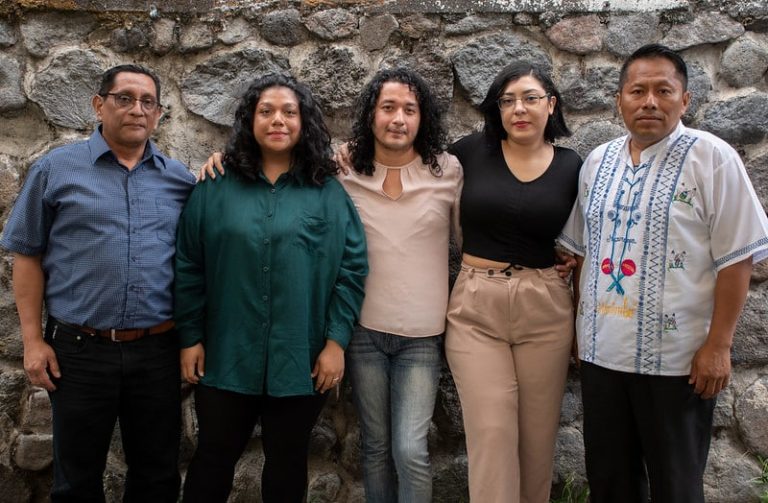
From left to right: Rommel Melendez, Valeska Valle, Damaso Vargas, Yaritzha Rostran, and Gabriel Putoy. Photo: Elmer Rivas.
On April 18, 2018, the sociopolitical reality of Nicaragua changed dramatically. The rebellion of citizens demanding rights took the entire country by surprise, shook the Ortega Murillo regime, and turned everything upside down.
That day, in Leon and Managua, senior citizens, supported by young university students and other citizens, protested a change in the pension system that would leave them with less money in their pockets. A few days earlier, dozens of university students had protested against the negligence with which authorities were responding to a serious fire in the Indio Maíz reserve in Nicaragua’s Caribbean region.
The physical attacks by members of the Sandinista Youth against the protesters, recorded and shared by citizens on social media, provoked the indignation of more citizens from all sectors and all over the country, who decided to demonstrate with university takeovers, daily and massive marches and sit-ins and citizen barricades that paralyzed the entire national territory. The regime responded with lethal repression, and the death toll began to climb into the dozens. Simultaneously, the collective outcry for justice for the victims, the cessation of state repression, the regime’s exit from power, and the return of democracy to the country grew.
It was more than a hundred days of the April Rebellion to which the dictatorship responded with the deadly “Operation Clean-up”, the imposition of a de facto police state, the imprisonment of all dissenters, and persecution that has driven tens of thousands to leave the country.
“It was a shock,” recalls Dr. Rommel Melendez, regarding that April 18, six years ago, as he saw the first images of the protests and attacks by Sandinista Youth members on local television channels. Young Valeska Valle and Yaritzha Rostran left their homes without thinking much, ready to join the student demonstrations in solidarity with those attacked.
Human rights defender Damaso Vargas didn’t hesitate either and the next day he was already supporting the students barricaded in one of the public universities. Professor Gabriel Putoy was giving his Math lesson at the Salesian School in Granada when someone texted him asking about his family’s safety. The teacher had no idea what was happening until he found out that very close to his home in Monimbo, Masaya, the police had attacked the elderly who were protesting for their pensions. The indigenous people’s response did not take long, and when the teacher returned home, he couldn’t believe what he saw: the city was in “insurrection.”
On the Esta Noche program five Nicaraguans who participated in the April Rebellion of 2018 recalled where they were when the citizen explosion occurred, highlighting moments and lessons from those days. They assure they regret nothing as they only exercised their rights as Nicaraguans. They discussed the aftermath of their exile in Costa Rica, and shared their expectations for the future of Nicaragua, which today remains under a radicalized dictatorship.
These are the testimonies of Dr. Rommel Melendez, from La Concepcion, Masaya; human rights defender of the LGBTI population Damaso Vargas; Managua university students Yaritzha Rostran and Valeska Valle, both members of university movements; and Professor Gabriel Putoy, from Monimbo, Masaya.
When the Rebellion broke out, I was working at the Ministry of Health (MINSA) and that day I began to watch the news on television and on social media, first with the elderly in Leon, then in Camino de Oriente in Managua. I was super surprised that a rebellion was gradually taking place. But the dictatorship’s response was swift, and I think it further fueled the protests.
During the protests, we managed to organize to support the students and youth. From La Concepcion, people traveled to Managua for the marches, sending 20 or 30 buses. In the first clash in my municipality, more than 53 people were injured, attacked by the Sandinista Youth, municipal workers, and other state institution employees. We had to organize a clandestine medical post to provide care because MINSA had closed the city center’s facilities.
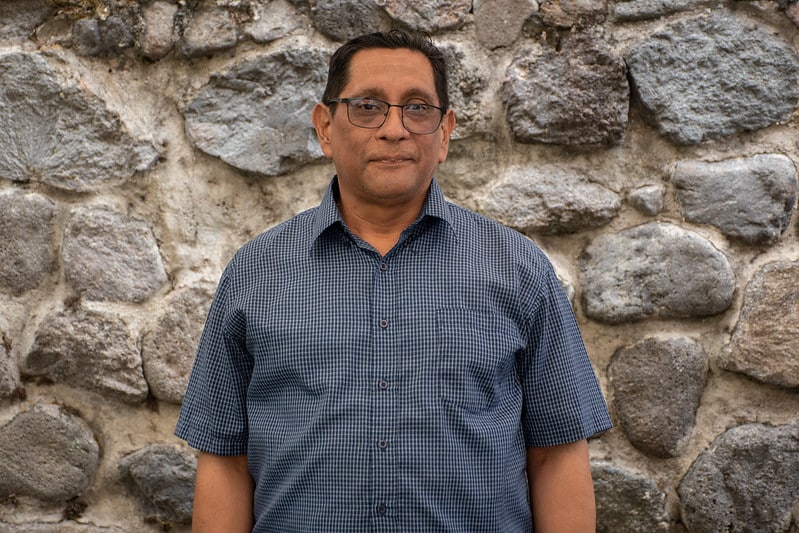
We did what we had to do. I wouldn’t change anything. Despite not being with my family, I wouldn’t change it.
In exile, I have been unable to practice medicine due to barriers set by the Costa Rican Medical College and obstacles we face in Nicaragua, which doesn’t provide us with documents. In Costa Rica, I have worked with a survey company, at a restaurant: initially at the reception, then in the dining room, and now as a bartender. It’s been a drastic change after 28 years of practicing medicine, but all experiences are welcome as they provide a means of subsistence for myself and my family.
We need unity among all Nicaraguan sectors to bring down the dictatorship. I think what was done in 2018 was a popular response from the students, from the youth, from all sectors, but it wasn’t a coordinated force that said: “This is what we’ll do.” It did demonstrate that the people were in the streets and nearly brought down this dictatorship. We need to improve organization, unity, and for all sectors against the dictatorship to come together in a united front.
On the morning of April 19, I went to the area of the National Engineering University (UNI), where I stayed until the 20th, when the police, paramilitaries, and Sandinista Youth entered with weapons to remove us, and then I moved to the Polytechnic University of Nicaragua (Upoli) where I barricaded myself until the end of April. At home, I had said I was going to work, and some friends were waiting for me on the corner. Since then, I spent about three years without seeing my mother, and the last time I saw her was before being forcibly exiled. On April 20, I saw someone collapse from a gunshot for the first time in my life. I had never experienced such shock, but I also experienced fraternity and solidarity among a bunch of young people who didn’t even know each other. That made me more determined in what I consider to be, not only a just struggle, but a noble one because of how it started.
The first thing that marked me was that after the first three days, the dictatorship said, “We will repeal this law (on Social Security), nothing has happened here. Let’s return to normal.” All the young people agreed that we had to continue. At that point, we had a commitment to justice. In less than a week, we had nearly 70 killed, and the regime wanted that erased.
The change in my life occurred after appearing in a press conference announcing the formation of a university movement called April 19, and afterward, the police were constantly watching my family, monitoring me, chasing me. I lived in more than 50 safe houses in two years.
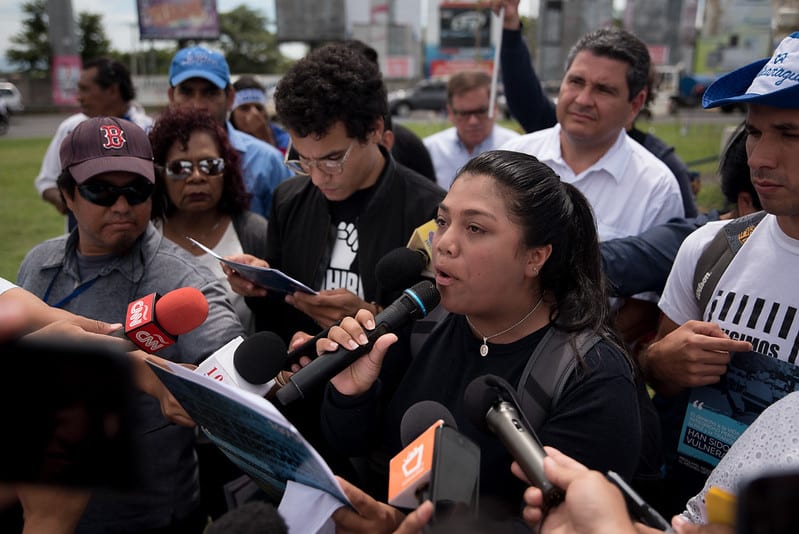
The National Dialogue in May (2018) also marked me. Many people don’t know, but the police tried to prevent us from reaching the Fatima Seminary, and here I highlight the bravery of the people who took to the streets [at the roadblocks] to clear the way because we had to get there.
Everyone in Nicaragua knows the sacrifice we’ve made, but I wouldn’t change anything. If I could, I would protect more those who were attacked because of what I did, but I believe everything happens as it should.
I lived in Nicaragua under a police state for several years, renounced any kind of social life, I didn’t even go to supermarkets because I had already experienced violence from some Sandinista fanatic. In Nicaragua, there is a brutal persecution and surveillance. I lived 100% in hiding, and when the police found the safe house I was in, they wanted to place me under house arrest, and I escaped until I managed to reach Costa Rica.
Leaving made me understand that when you leave (into exile), the struggle does not end. I had to remain silent within Nicaragua, and I found my voice and strength again to continue this commitment to future generations. April made us discover the strength that Nicaraguans have to generate change.
I had just resumed classes to finish high school. It had been two weeks since I started classes when on April 17, I saw the news about the reforms to the Nicaraguan Institute of Social Security (INSS) and the calls to demonstrations, so I decided to go, like just another person going to shout slogans on the street.
On April 18, when night fell, we were attacked (riot police and Sandinista Youth) while we were outside the UCA, they surrounded us at the Centroamerica roundabout, and we threw ourselves into a ditch to escape. By the 19th, the universities were taken over, and there was a group gathering to support the students at the UNI, so I went.
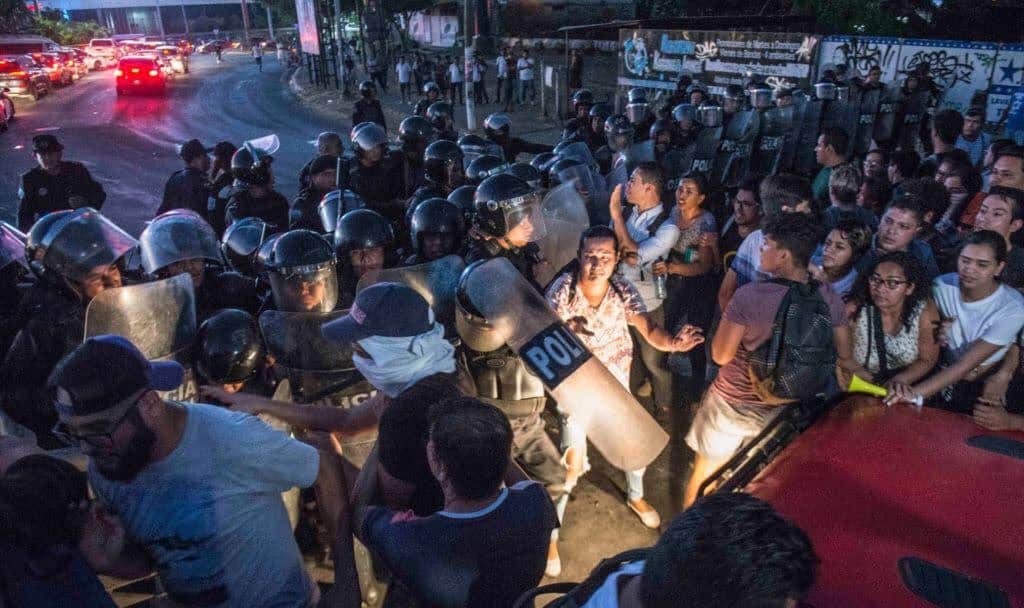
Damaso Vargas, on April 18, 2018 in the vicinity of the Rotonda Centroamerica in Managua, surrounded by riot police who were trying to quell the citizen demonstration. Photo: Courtesy.
What impacted me most was the spontaneity of the protest. We were marching, and people had so much energy to walk for hours under the intense midday sun. I remember the eagerness of the people to be on the streets because they belong to us, because it is our right, because we are Nicaraguans.
Despite the intense pain we felt each time someone was killed, the marches never turned to the use of weapons. In one of them, near the UCA, I remember someone shouting: “Free homeland,” and some responded: “Or die.” And then others turned and said: “No, not die, nobody wants to die.”
The spontaneous collectivity also helped Nicaraguans survive those horrible months we had to live through.
Exile has been a rollercoaster. It was nice to meet many Nicaraguan people, but it was also difficult to feel restrained, and now you are the one who needs help, the one who needs food for a week. Suddenly we felt very weak, powerless, and it is a tough but good lesson that exile leaves me with.
In Nicaragua, we realized that being calm, sitting at home watching TV wasn’t democracy, and that going to vote for someone wasn’t enough to say we had democracy. I think it is a national lesson. As for my hopes, they remain to have a just, equitable Nicaragua where all of us are treated as human beings, where no one lacks rights.
What moved me to take to the streets was the student issue. I was a student at the National Autonomous University of Nicaragua, UNAN-Managua, and seeing the young people from UNAN Leon on the streets on April 18, being attacked, impacted me greatly.
I was on the streets, at the National Agrarian University, and at Upoli. The solidarity with the students, the fight for university autonomy, kept me in a constant state of protest. And the killings of young people. On April 20, I was at the cathedral (in Managua), near where [15-year-old] Alvarito Conrado died, and those events impacted and moved me greatly, but at the same time filled me with commitment. I have an unbreakable commitment to justice.
I highlight the student organization from the Rebellion. Both young people from the neighborhoods and students were not prepared for the level of repression we faced. Along with the peasant movement at the time, we were among the most persecuted and attacked sectors by the dictatorship during Operation Clean-up. Yet we played a decisive role in everything, in the National Dialogue, and the new organizations that emerged from the protests. It was all to be the voice of the people on the streets, who trusted the student movement, the young people, and these sectors not associated with the political parties that had harmed us so much.
If I could change something, I wouldn’t let myself get arrested (by the police) in 2018. Prison was an extremely painful episode. Too unjust. We were students, we weren’t doing anything wrong, that shouldn’t have happened. I would change many things, but I think I did my best. I have no regrets about that. I have no regrets. I believe I made the right decisions.
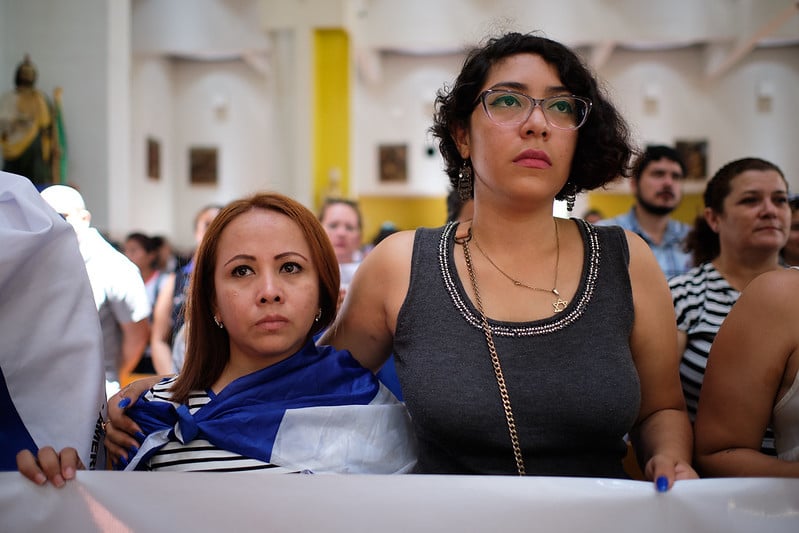
Despite all the persecution we faced in Nicaragua in 2019, 2020, and even early 2021, I felt I could handle it, but when the arrests began (the imprisonment of dozens of opponents), I wondered if I could endure going through that process (of imprisonment) again, and in reality, no.
Moreover, in Nicaragua, there was no longer any opportunity to do anything, they had expelled me, I couldn’t study at the university, and the decision to go into exile was to continue my studies. Exile has been terrible for me. I haven’t gotten used to being here. Every day I think about returning, I am determined to return to Nicaragua. I am grateful to be here in Costa Rica, to have this freedom, to regain a personal life, not having that constant fear of being detained as we lived in Nicaragua, but yes, I want to return as soon as possible.
I would highlight two specific lessons from April. First, this is a historical process rooted in many pains Nicaraguans have accumulated over time, so it’s not valid to talk about ideologies. There is pain not only from the political, party, or ideological aspect but also from poverty, the marginalization we’ve been forced to live in. I’m a young woman from a marginal neighborhood in Managua and growing up in such places marginalizes you just because you’re born there, and it’s very difficult to break free from that poverty. That reality of Nicaraguans is what made us take to the streets in 2018. We need to change that; we all deserve a better life.
And the second lesson is that the solidarity and community fabric we can build in Nicaragua is a reality and was demonstrated in 2018. The Sandinista Front, despite trying to co-opt it, has not succeeded. The role of civil society and community organizations is there, and we need to take advantage of it to rebuild the nation as we desire.
When the Rebellion began, I was at the Salesian School in Granada teaching classes. Some teachers called me, asking about my family because we lived exactly in the three blocks where the rebellion occurred (in Masaya). I didn’t understand what they were talking about, but when I left, I saw what was happening in the neighborhood, and people said the police had attacked the elderly in a march, and they had run to Monimbo, and everything was insurrectional.
From those days, I remember how the young people from my neighborhood protected themselves with a zinc roofing sheet, on a corner where I was watching from a cousin’s house, and the police were shooting to kill them. It also impacted me that the son of a fellow teacher, Alvaro Gomez, was one of the first to die. I said: “We can’t just sit back; we have to find a way to keep going, to seek justice for Alvarito.” And we weren’t going to back down; we had to stand in solidarity with one another because his pain was my pain.
In this struggle, despite being very tough, we’ve met very courageous, heroic people. I felt the commitment to be a teacher, to educate generations, but there were those who were teaching me to be a patriot.
I wouldn’t change anything. I have no regrets. On the contrary, I’m very proud of having taken those actions that cost us imprisonment. April is strength, resilience, bringing out the best in yourself for your homeland. There must be a change in Nicaragua, and we continue here. It doesn’t matter if another six years pass and we have to endure, but they (the dictators) will leave, they will leave.
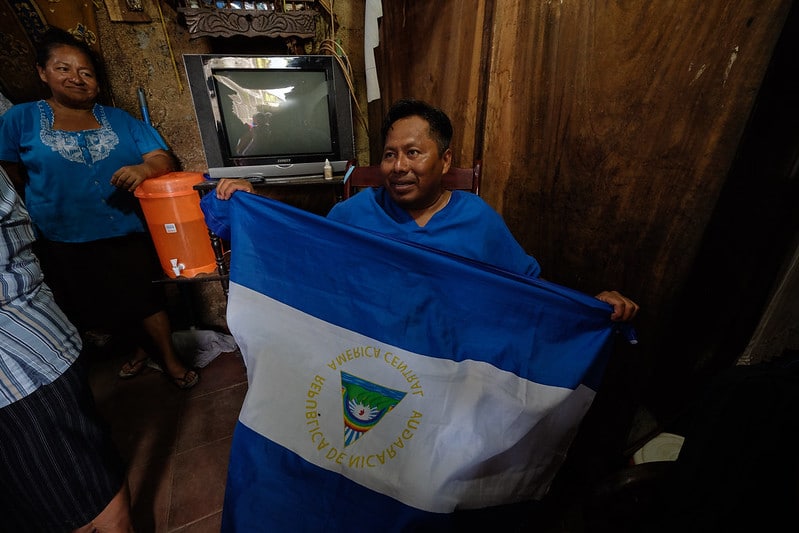
I also thought, (like other exiles), that exile would be short, that at some point the people would rise up again, or that the exiles would return.
Exile has been a continuous learning experience. I’ve dedicated my life to the struggle. I’ve learned to survive with the jobs I’ve had, I’ve started businesses, I’ve done everything to survive in Costa Rica, but without neglecting the struggle for a minute. Yes, we want to return as soon as possible, but I’m aware of the reality, and I say: “It doesn’t matter if it’s another six years, the thing is that they leave and that this doesn’t happen again.”
I ask the citizens to commemorate the April Rebellion from a place of unity. Unity is diversity in harmony. April is youth, it is not allowing continuity, it is social demands for state workers, it is giving space to new generations.
As Pope John Paul II said: “Ideas are not imposed; they are proposed. Let’s propose ideas on the table, let’s see each other as brothers and sisters, let’s dialogue, and let’s give the country the best men and women. Let’s leave new generations with something different than what we are experiencing.”
This article was published in Spanish in Confidencial and translated by Havana Times. To get the most relevant news from our English coverage delivered straight to your inbox, subscribe to The Dispatch.
PUBLICIDAD 3M
Periodista nicaragüense desde 2007, con experiencia en prensa escrita, televisión y medios digitales. Tiene una especialización en producción audiovisual y una maestría en Medios de Comunicación, Estudios de Paz y Conflicto de la Universidad para la Paz de las Naciones Unidas. Fundadora y editora de Nicas Migrantes, proyecto por el cual ganó el Impact Award 2022 del Departamento de Estado de EE. UU. Ha realizado coberturas in situ en Los Ángeles (Estados Unidos), México, El Salvador, Guatemala, Nicaragua y Costa Rica. También ha colaborado con France 24, The Guardian, Al Jazeera, BBC World Service. Ha sido finalista y ganadora de varios premios nacionales e internacionales, entre ellos el Premio Latinoamericano de Periodismo de Investigación Javier Valdez, del Instituto Prensa y Sociedad (IPYS), 2022.
PUBLICIDAD 3D